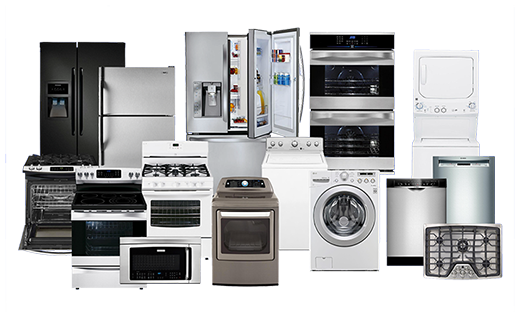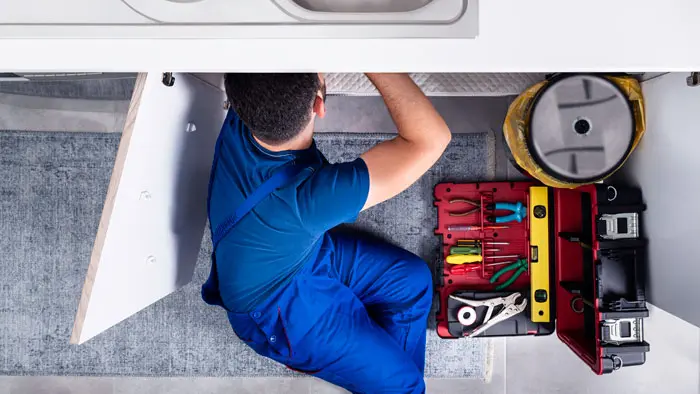The Ultimate Guide to Comprehending Home Appliance Repair in the house
When your fridge quits cooling or your stove declines to warmth, it can feel frustrating. Comprehending appliance repair service at home can conserve you money and time. You'll find out to identify signs and symptoms, use important tools, and comply with an organized troubleshooting procedure. Prior to you start, there are important security preventative measures you require to take right into account. What are the most common troubles, and exactly how can you repair them? Let's check out the essentials.
Typical Home Appliance Troubles and Their Symptoms
When your appliances begin acting up, it's vital to recognize the signs early on. Neglecting them can cause bigger concerns and expensive repair work. For circumstances, if your fridge isn't cooling down appropriately, you might see warm spots or condensation forming. This might indicate a falling short compressor or an obstructed vent.Your dishwashing machine might show issues with unclean dishes or unusual sounds throughout cycles. If you listen to grinding or clanking, it's time to investigate.A washing machine that won't spin or drain pipes can leave you with soggy washing, suggesting a blocked drain or a malfunctioning pump.Lastly, if your stove's temperature seems off or it takes for life to pre-heat, you might be dealing with a malfunctioning thermostat. By staying alert to these signs and symptoms, you can resolve problems prior to they intensify into major repairs.
Essential Tools for Home Appliance Repair Service
When you're taking on home appliance repairs in the house, having the right devices is crucial. Fundamental hand tools like screwdrivers and pliers will certainly aid you dismantle and repair numerous home appliances, while electrical screening gadgets guarantee you're functioning safely with circuitry. Let's look at what you require to get going on your fixing journey.
Basic Hand Tools
Having the right devices is essential for efficient device repair in your home. Start with a dependable screwdriver set, consisting of both flathead and Phillips types, as screws prevail in device assembly. Pliers are likewise vital; they aid with gripping, twisting, and cutting wires or tiny parts. A pair of needle-nose pliers can reach limited spots quickly. You'll need a great flexible wrench for tightening up or loosening up nuts and bolts. An utility blade comes in handy for cutting with packaging or insulation. Do not fail to remember a tough workbench or surface area to safely organize your devices and components. With these standard hand tools, you'll be well-prepared to tackle most device repair services that come your means.
Electrical Testing Instruments
Alongside fundamental hand devices, electrical testing tools play a vital function in appliance repair service. These tools help you diagnose electric concerns and guarantee appliances function securely. A multimeter is vital; it determines voltage, present, and resistance, enabling you to pinpoint problems rapidly. A non-contact voltage tester is an additional must-have, letting you find real-time cables without making straight get in touch with, enhancing your safety and security. Secure meters are wonderful for gauging existing circulation in wires without detaching them, saving you time and effort. Furthermore, circuit testers can quickly inspect if outlets are operating effectively. By utilizing these tools, you'll streamline your troubleshooting process and improve your repair service abilities, making device maintenance a great deal easier.
Step-by-Step Overview to Diagnosing Home Appliance Issues
When your home appliance acts up, it can be discouraging, but diagnosing the issue does not need to be overwhelming. You'll learn to determine common troubles and use efficient repairing methods. Let's go through the steps to get your device back in working order.
Common Home Appliance Troubles

Fixing Techniques Clarified

Fixing Significant Kitchen Devices: A Closer Look
Have you ever before questioned exactly how to tackle usual problems with your kitchen devices? Repairing significant kitchen devices like fridges, ovens, and dishwashers can be much easier than you believe. Start by determining the issue-- whether it's a fridge not cooling down or a stove that won't heat. Typically, a simple reset or examining the power resource can address the issue.For refrigerators, clean the condenser coils and examine the door seals. If your stove's not home heating, check the burner and thermostat. Dishwashers could simply require a clean filter or a reset to get them back in activity. Always unplug the device before diving right into repairs to assure your safety.Don' t neglect to consult the customer handbook for certain repairing pointers associated with your design. With a little patience and the right tools, you can confidently deal with appliance fixings and conserve cash at the same time!

Troubleshooting Laundry Equipments: Tips and Techniques
When your washing home appliances start acting up, it can feel frustrating, but troubleshooting them does not need to be a problem. Begin by inspecting the power supply. Verify the device is plugged in and the outlet is operating. Next, evaluate the door or cover switch; a malfunctioning button can stop the maker from operating.For washing machines, if it's not rotating, check for unbalanced lots. Redistributing the clothing may solve the problem. If your clothes dryer isn't home heating, clean the dust filter and check the air vent for blockages.Listen for uncommon sounds; they can indicate a trouble. If your appliance is dripping, examine the pipes for cracks or loose links. Paper any kind of mistake codes shown on digital displays, as they can assist you in determining the issue. Consult the individual manual for certain fixing tips connected to your version.
Safety And Security Preventative Measures to Take Throughout Repairs
Prior to you begin any device repair work, it's important to focus on safety to stop crashes or injuries. Unplug the appliance or turn off the circuit breaker to guarantee no power reaches it while you work. Usage insulated devices to minimize the danger of electrical shock. Use security goggles and handwear covers to secure yourself from sharp sides or debris (Dependable Refrigeration & Appliance Repair Service Washer repair near me).Make specific your work area is tidy and well-lit, so you can see what you're doing. Maintain children and pet dogs away from the area to avoid interruptions and possible risks. If you're taking care of gas home appliances, be additional careful; look for leaks before proceeding.Take your time, and do not hurry through fixings. If you really feel uncertain concerning any kind of step, it's much better to stop and research study than to presume. Following these preventative measures will aid create a more secure setting for your DIY device repair project
When to Call an Expert for Help
Exactly how do you know if it's time to contact a professional for home appliance repairs? If you've tried standard troubleshooting without success, it's a clear indicator. For example, if your device still won't begin or reveals uncommon sounds after resetting it, do not be reluctant to seek specialist help.When you discover leakages, smoke, or shedding smells, focus on safety and security and call a professional immediately. These concerns can bring about even more significant damages or pose threats to your home.Also, if your home appliance is under guarantee, getting in touch with an expert is commonly the very best route. They can ensure that fixings won't invalidate your service warranty, conserving you money in the long run.Finally, if you're unsure or unpleasant with intricate repair work, it's a good idea to leave it to the professionals. Bear in mind, tackling complex concerns without the right experience can bring about expensive blunders. Depend on an expert when unsure!
Frequently Asked Concerns
Exactly How Can I Stop Device Problems in the Future?
To protect against appliance problems in the future, you should execute routine maintenance, check for deterioration, tidy filters, and prevent overloading. Remaining proactive will help prolong their life expectancy and keep them running smoothly.
What Are the Most Common DIY Device Repair Work Mistakes?
You may overlook safety precautions, skip fixing actions, or utilize inaccurate tools when trying DIY home appliance fixings. Hurrying the procedure or overlooking supplier standards can bring about more substantial problems and costly errors. Remain patient and informed!
Just how Do I Know if a Part Needs Replacement?
You can inform if a component requires replacement by looking for uncommon sounds, leaks, or inconsistent performance. If the device battles to run correctly or shows visible damages, it's most likely time for a substitute.
Can I Use Generic Components for Device Services?
Yes, you can utilize generic components for appliance repairs, here however identify they work - Washer dryer repair service Dependable Refrigeration. Common components may conserve you cash, however they can influence performance or durability, so weigh your choices carefully before choosing
What Service Warranties Cover Appliance Repairs?
The majority of home appliance guarantees cover repair work for manufacturing flaws, yet they usually omit damage from misuse. Inspect your service warranty terms meticulously, as some might need utilizing qualified service technicians and original parts for coverage to remain valid.